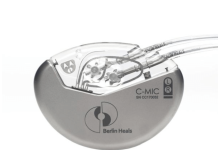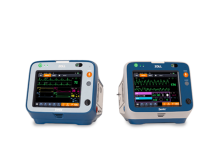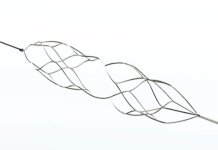Stimvia is set to enter the multi-billion dollar neuromodulation market in the United States with its innovative URIS device. The Czech company says this is the first non-invasive closed-loop neuromodulation system to treat overactive bladder (OAB) without surgery or drugs.
Stimvia has come to the market with the device after several years of research and three clinical trials.
Related: Accuray wins CE mark for new helical radiation delivery system
The URIS device has recently secured the Medical Device Regulation (MDR) certification from TÜV SÜD, covering the non-invasive neuromodulation technique (eTNM) as well as the mini-invasive percutaneous tibial nerve stimulation (PTNS) method. The certification allows Stimvia to enter the European market and opens doors to global reimbursement opportunities.
The company says this achievement also unlocks the its path to the overactive bladder treatment market, where it says the current cost of neuromodulation treatment is nearly 1 billion USD per year only in the USA.
Overall, the direct and indirect costs of OAB treatment in the EU and the USA are estimated at more than 117 billion USD per year. Stimvia says it aims to dominate a significant portion of this market and is just a step away from bringing its breakthrough technology to the US, enhancing the quality of life for millions of OAB patients.
Stimvia says the milestone marks an important step in its journey to transform the current treatment of OAB and create a multi-billion-dollar market.
Stimvia’s URIS device uses specially developed electrodes that stimulate the peroneal nerve, correcting brain imbalances and significantly reducing the severe and unpredictable urinary urgencies experienced by OAB patients. The device is also equipped with closed-loop feedback, based on which it is possible to evaluate the effectiveness of stimulation and adjust the stimulation parameters to the specific patient.
“We are proud to be the first company globally to introduce this innovative closed-loop neuromodulation system,” said Lukas Doskocil, CEO of Stimvia.
Stimvia says that receiving MDR certification for the mini-invasive PTNS method, offers an alternative treatment for incontinence. With this certification, Stimvia says it has become only the third company in the world, and the first in Europe, to possess the certification for this technology.
This achievement is a step towards allowing Stimvia to enter the American market and brings the company closer to obtaining FDA 510(k) clearance, a critical step toward launching in the US.
The company says the PTNS method has also become much more precise after being combined with the URIS device, and its application, which involves inserting a small stimulation needle into the inner side of the patient’s ankle, has become more comfortable for both the doctor and the patient.
“Thanks to obtaining MDR certificates for the PTNS method, we enter the system of reimbursement by health insurance companies in Europe and in the USA as well. We already have the first devices in the offices of Czech urologists. At the same time, we are already in the process of delivering our devices to countries in Europe, such as Italy, France, Spain, Denmark, the Netherlands, and the UK,” said Doskocil. “While the PTNS method is recognied globally in the healthcare system, our non-invasive technology is also gaining attention due to the excellent results and high quality of our clinical trials.”




